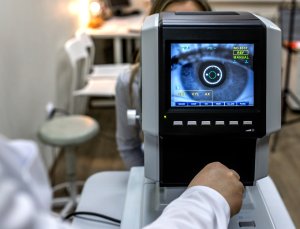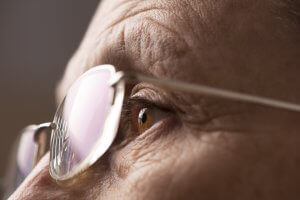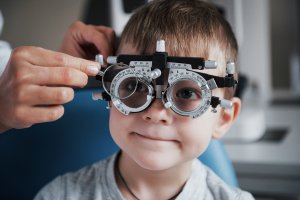Cataract Surgery Lancaster PA

Voted Best of Berks—
eight years in a row!
Many people will develop cataracts as they get older, and cataract surgery may eventually become necessary. Eye Consultants of Pennsylvania offers state-of-the-art cataract surgery, lenses and technologies for patients in Lancaster, PA and across the region.
Our skilled cataract specialists have undergone extensive training for treating cataracts,. If you think you may have a cataract, it’s important to visit us for evaluation and diagnosis. Sometimes, a condition that seems to be a cataract may actually be another problem altogether.
What is a Cataract?
A cataract is a clouding of the eye’s naturally clear lens. When the natural lens becomes cloudy, vision quality is diminished. Many people describe it as similar to looking through a foggy car window or a piece of waxed paper.
Cataract Symptoms
Cataracts are most often associated with aging and, according to Prevent Blindness America, more than 24 million Americans age 40 and older have at least one cataract. But cataracts can also affect younger people. Eye injuries, certain medications, and genetic conditions can cause cataracts, even in babies.
If you are experiencing any of the following symptoms, you may have a cataract:
- Cloudy or blurred vision
- Sensitivity to light
- Glare and halos around bright lights
- Difficulty seeing in the dark
- Frequent changes in eye prescription
- Excessive blinking
- Colors appear dull
- Double vision in one eye
If you suspect you may have a cataract, be very careful at night, and avoid driving when your vision is not clear and sharp.
About Cataract Surgery
Cataract surgery is performed on an outpatient basis. During the procedure, the cloudy natural lens of your eye is removed and replaced with a clear artificial lens called an intraocular lens implant (IOL).
The surgery is performed under a special microscope and involves making a small incision. An ultrasonic needle is used to soften the lens material in order to remove it. This is called “phacoemulsification.”
Once all of the cataract material has been removed, an intraocular lens is inserted through the incision and positioned inside the eye, where it will remain. You will never feel the intraocular lens or even know it’s there.
The entire procedure takes less than one hour. Cataract surgery is virtually painless and recovery is quick. The incision will heal on its own, and stitches are usually not required.
Lens Options
Modern intraocular lens technology can dramatically improve your ability to see clearly. Depending on your specific vision needs, there are several types of lens implants that your cataract specialist might suggest.
They include monofocal, multifocal, toric and accommodating lenses. Each one works in a different way to help achieve vision correction goals. Ultimately, your doctor will know which lens is best suited for your eye and can help you decide on the best option.
Cataract surgery is the only way to remove a cataract and restore clear vision.
Our highly skilled cataract surgeons include:
Christina Lippe, MD, who received her medical degree from the Pennsylvania State University College of Medicine and performed her ophthalmology residency at the University of Oklahoma.
Abhishek Nemani, MD, who received his medical degree from the State University of New York Upstate Medical University in Syracuse and was fellowship-trained in at the prestigious Scheie Eye Institute at the University of Pennsylvania.
Kevin J. Shah, MD, who received his medical degree from SUNY Upstate Medical University and received his fellowship training at the Cincinnati Eye Institute at the University of Cincinnati.
If you are having vision problems and think you may have a cataract, or want more information about cataract surgery options in Lancaster, PA, contact Eye Consultants of Pennsylvania today to schedule an evaluation.
For an appointment, call toll-free 1-800-762-7132.
Find a Doctor
Physician information including education, training, practice location and more.
Schedule an Appointment
Call 800-762-7132 or make an appointment online.





